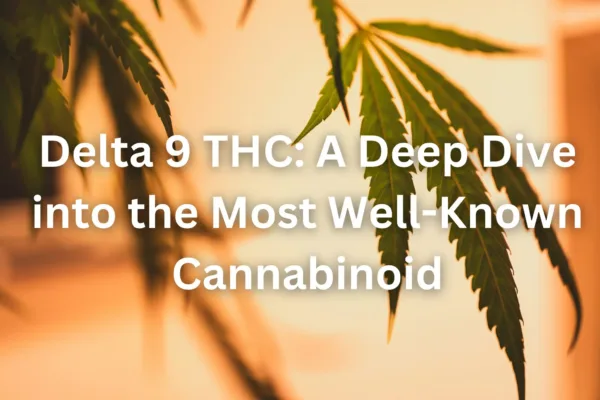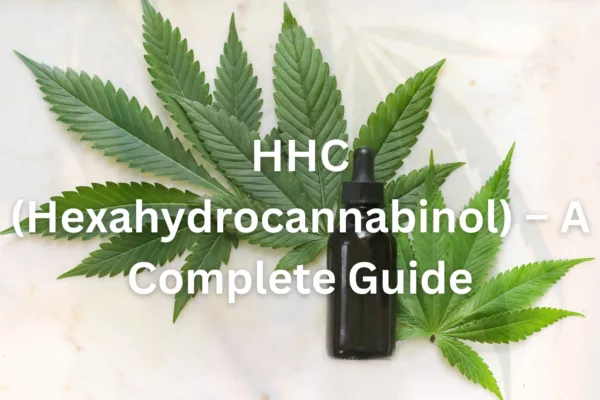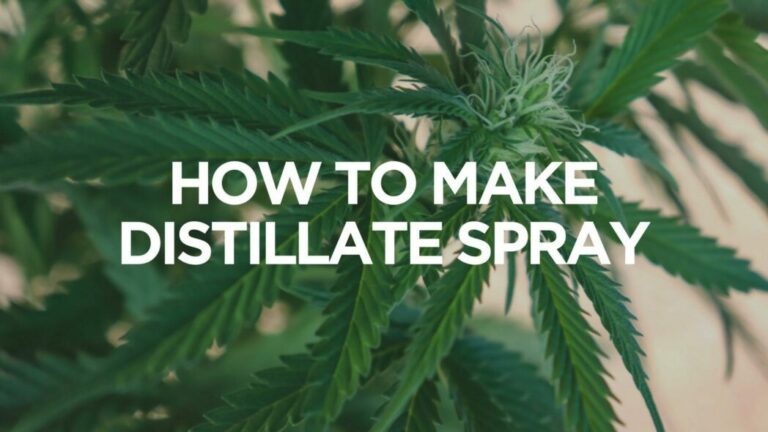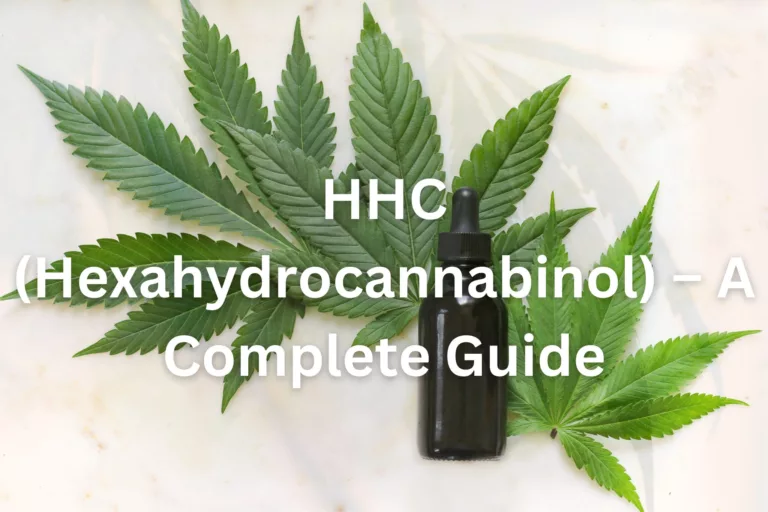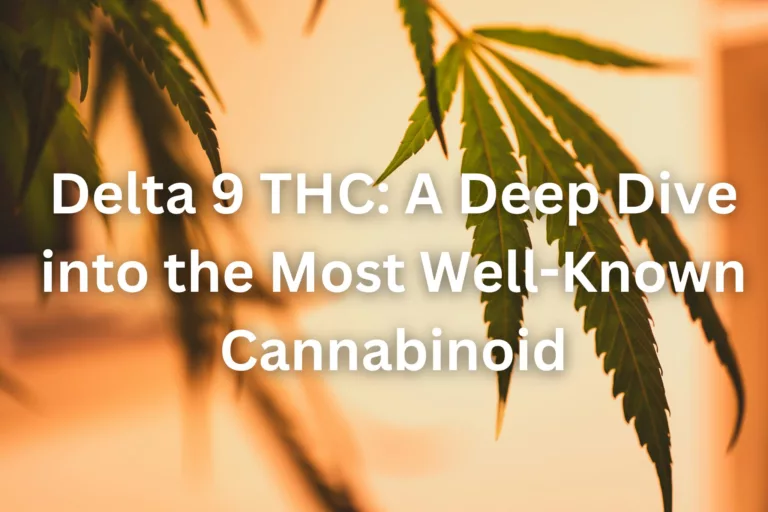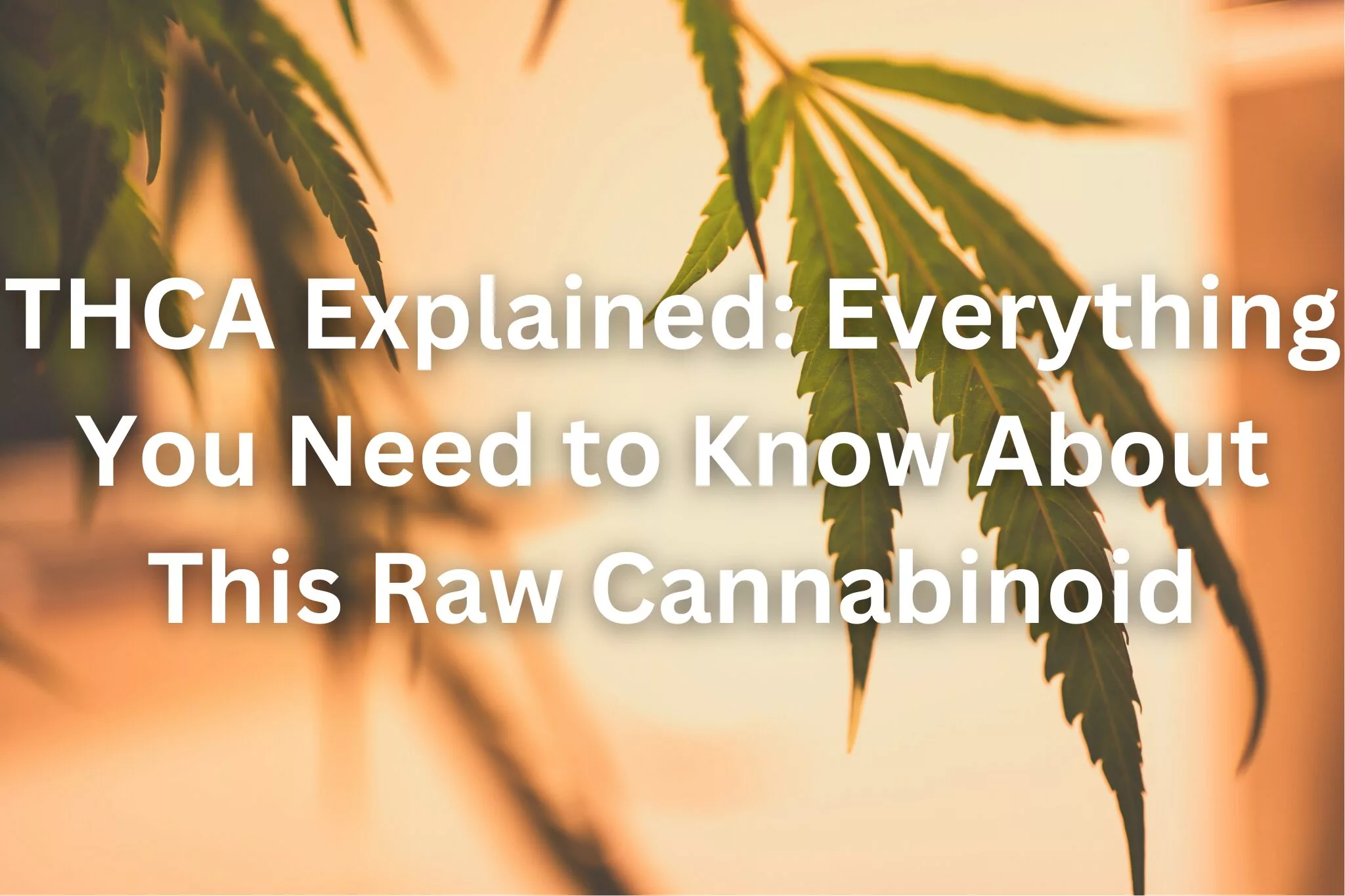
THCA Explained: Everything You Need to Know About This Raw Cannabinoid
Cannabis is a complex plant with more than 100 known cannabinoids — each playing a unique role in how the plant interacts with the human body. While THC and CBD usually steal the spotlight, there’s one compound that’s starting to gain significant attention for its raw potential: THCA.
At Cannaclear, we believe in transparency, education, and access to hemp-derived cannabinoids that meet both legal standards and customer expectations. In this guide, we’ll break down what THCA is, how it works, how it compares to THC, and why it’s quickly becoming a standout in the hemp industry.
What Is THCA?
THCA (tetrahydrocannabinolic acid) is the non-psychoactive precursor to Delta 9 THC, found naturally in raw and live cannabis plants. It’s present in high concentrations in freshly harvested cannabis flower and begins converting into Delta 9 THC when heated — a process known as decarboxylation.
Think of THCA as the raw form of THC. On its own, it doesn’t produce a high. But once it’s exposed to heat (like through smoking, vaping, or baking), it transforms into the intoxicating cannabinoid most people associate with cannabis.
How Does THCA Work?
In its raw form, THCA does not strongly bind to CB1 or CB2 receptors in the endocannabinoid system. This is why it doesn’t cause the same psychoactive effects as THC.
However, THCA becomes Delta 9 THC once heated. That’s why high-THCA hemp flower, when smoked or vaped, will feel indistinguishable from traditional cannabis flower — because it becomes THC upon use.
???? Decarboxylation: Turning THCA into THC
Decarboxylation is a chemical reaction that removes a carboxyl group (COOH) from THCA, converting it into THC. It typically occurs at temperatures around:
- 220–240°F (104–116°C) for low/slow baking
- Around 350–400°F (176–204°C) during vaping or smoking
This conversion is what makes THCA flower a popular and federally compliant alternative for those seeking traditional THC experiences in states where cannabis is still restricted.
Where Is THCA Found?
THCA is naturally abundant in:
- Fresh cannabis buds
- Hemp flower cultivated for high THCA content
- Extracts, rosins, or live resin from raw cannabis material
Cannaclear sources THCA-rich hemp flower that meets the federal standard of less than 0.3% Delta 9 THC by dry weight, while still delivering a potent experience when used properly.
Why Is THCA Legal?
Here’s where things get interesting. Under the 2018 Farm Bill, any hemp-derived product is federally legal if it contains:
- Less than 0.3% Delta 9 THC by dry weight
THCA is not Delta 9 THC, and thus not restricted under that definition — even though it converts into Delta 9 when heated. As a result, THCA flower that is harvested and tested in its raw form can legally comply with federal law — while still delivering traditional cannabis effects when consumed via smoking or vaping.
However, states are catching on, and some are moving to close the loophole. It’s crucial to stay updated on your local laws and only purchase from vendors who offer third-party lab tests to verify legal compliance.
THCA vs. THC: Key Differences
| Feature | THCA | Delta 9 THC |
|---|---|---|
| Chemical Structure | Includes a carboxylic acid | Converted form after decarboxylation |
| Psychoactive? | No (in raw form) | Yes |
| Legal Status | Federally legal (if under 0.3% D9) | Federally illegal (marijuana-derived) |
| Found In | Raw/hemp cannabis flower | Heated/processed cannabis products |
| Usage | Edibles, tinctures (raw) or smoking/vaping (to convert to THC) | Smoking, edibles, tinctures |
How THCA Is Used
There are two primary ways people use THCA — each with a different outcome depending on whether heat is applied.
???? Raw (Non-Decarboxylated) Uses
In its raw form, THCA can be used by those looking to experience cannabis without intoxication. This includes:
- Juicing raw cannabis leaves
- Using THCA tinctures or capsules
- Adding raw extracts to smoothies or foods (not heated)
Because raw THCA doesn’t convert into THC unless heated, this method delivers the cannabinoid in its acid form — allowing consumers to engage with cannabis without a high.
???? Heated (Decarboxylated) Uses
When THCA is smoked, vaped, or cooked at high temperatures, it turns into Delta 9 THC — making it psychoactive.
Common uses include:
- THCA flower pre-rolls
- Vape carts with THCA distillate or live resin
- Dabbing THCA concentrates
- Baking edibles with decarbed THCA flower or oil
At Cannaclear, we offer compliant THCA products meant for experienced users who are looking for a traditional THC experience with the legality of hemp.
What Are the Effects of THCA (After Heating)?
Once decarboxylated, THCA acts like Delta 9 THC — meaning it may produce the classic effects associated with cannabis use. While everyone’s experience varies, common user-reported effects include:
- Euphoric or mood-elevating sensations
- Heightened sensory awareness
- Deep physical relaxation
- A boost in appetite
- Changes in time perception
- Sedation or couch-lock at higher doses
Again, these effects only occur after heating, since raw THCA is non-intoxicating.
What’s the Appeal of THCA Flower?
The biggest appeal of THCA flower is that it provides the authentic cannabis experience while complying with federal law.
???? Why People Choose THCA Flower:
- Legal Access: THCA flower can be shipped to most states that allow hemp products.
- Full Spectrum Experience: It contains natural terpenes and cannabinoids.
- High Potency: Once activated, THCA delivers effects similar to traditional Delta 9 flower.
- No Synthetic Conversion: Unlike Delta 8 or HHC, THCA doesn’t require chemical alteration — it’s a naturally occurring compound.
- Better Flavor & Aroma: THCA flower is typically fresh, fragrant, and terpene-rich.
How to Read THCA Lab Results (COAs)
Reputable companies like Cannaclear provide lab-tested Certificates of Analysis (COAs) for every batch of THCA product. Here’s how to read them:
1. Total THC Calculation
Labs use this formula to estimate total potential THC after heating:
Total THC = (THCA x 0.877) + Delta 9 THC
If this number stays below 0.3% Delta 9 THC by dry weight, the product is federally legal.
2. Cannabinoid Breakdown
Look for:
- THCA %
- D9 THC %
- CBD %
- CBG, CBC, etc. (minor cannabinoids)
3. Testing for Safety
Always confirm the product is tested for:
- Pesticides
- Heavy metals
- Microbial contaminants
- Residual solvents (for concentrates)
Is THCA Safe?
When sourced from a reputable vendor and used responsibly, THCA products are generally safe for adult use. However, like all cannabinoids that become psychoactive when heated, they should be consumed mindfully.
⚠️ Things to Consider:
- Potency: THCA flower can be extremely potent once activated. Start low.
- Storage: Keep raw THCA flower in a cool, dark place to avoid accidental decarboxylation.
- Lab Results: Only purchase from vendors who offer transparent testing.
Cannaclear offers verified, lab-tested THCA products that meet all compliance and safety standards.
Who Is THCA For?
THCA may appeal to a wide variety of users, including:
- Experienced THC consumers who want legal access to traditional effects
- Residents in states without legal marijuana who want a compliant option
- Health-conscious individuals interested in the raw, non-intoxicating form of cannabis
- People exploring full-spectrum cannabinoids and terpene-rich experiences
Whether you’re looking to microdose with raw THCA or explore potent effects through smoking or vaping, THCA offers flexibility and legal access not commonly found with other cannabinoids.
Where Is THCA Legal?
Currently, THCA flower is federally legal under the 2018 Farm Bill as long as it contains <0.3% Delta 9 THC by dry weight.
However, several states have begun to restrict or clarify the legality of smokable hemp products — especially those that convert into Delta 9 when used.
As of this writing, THCA is legal in most states, but restrictions are rapidly evolving. Cannaclear does not ship to states where THCA products are prohibited.
The Future of THCA
As more consumers look for federally legal ways to access the traditional cannabis experience, THCA is quickly emerging as a top-tier solution.
We anticipate:
- More THCA flower options with craft genetics
- Stronger compliance enforcement by states
- Greater public education around decarboxylation and effects
- Expanded terpene profiling and strain variety
At Cannaclear, we’re excited to be part of this evolution — offering clean, high-quality, legal THCA products designed with integrity and innovation.
Final Thoughts: Is THCA Right for You?
Whether you’re interested in exploring cannabinoids without the high or you’re looking for a federally legal product that mimics traditional cannabis, THCA offers a best-of-both-worlds option.
✅ In raw form, it’s non-intoxicating and versatile.
✅ When heated, it delivers a familiar cannabis experience.
✅ With federal compliance and third-party testing, it’s more accessible than ever.
Explore our full lineup of THCA flower and concentrates at Cannaclear — and find your new favorite way to enjoy the power of the plant.
Frequently Asked Questions
Q: What is THCA?
A: THCA is the non-psychoactive acid form of THC. It’s found in raw cannabis and converts to Delta 9 THC when heated.
Q: Does THCA get you high?
A: On its own, no. But when THCA is smoked, vaped, or baked, it converts to Delta 9 THC, which is psychoactive.
Q: Is THCA legal?
A: Yes, THCA is federally legal under the 2018 Farm Bill as long as the product contains less than 0.3% Delta 9 THC by dry weight.
Q: How is THCA used?
A: You can use THCA raw (in tinctures or juices) or decarboxylate it (via smoking, vaping, or baking) to activate THC.
Q: Is THCA flower the same as weed?
A: THCA flower looks, smells, and feels like traditional cannabis but is legally classified as hemp until it’s heated.
